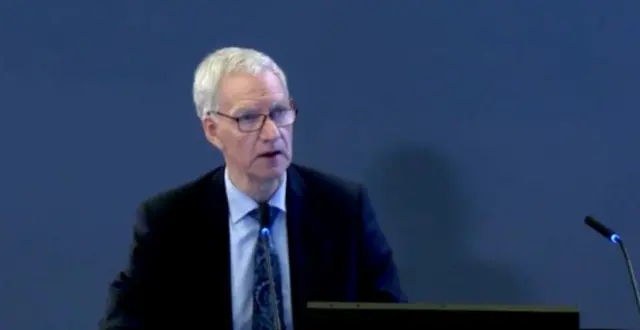'Horrific manner'published at 10:12 GMT 18 February
"During the 16 August, I attempted to visit as many of the bereaved homes as possible to pay my personal respects and offer whatever assistance I could."
After visiting several homes, Mr Baxter said he "found this to be the most difficult and emotional duty of my career".
Families were "devastated" by their loss in "such a horrific manner".
